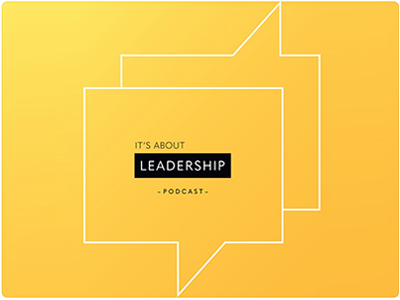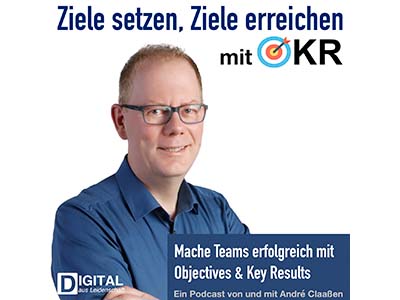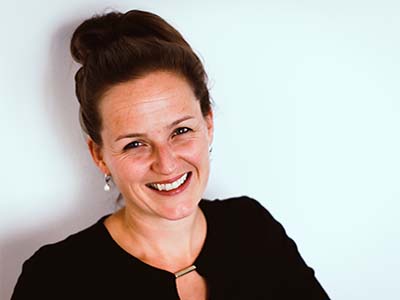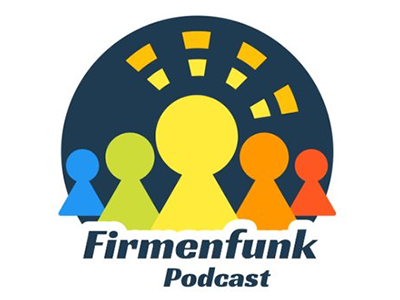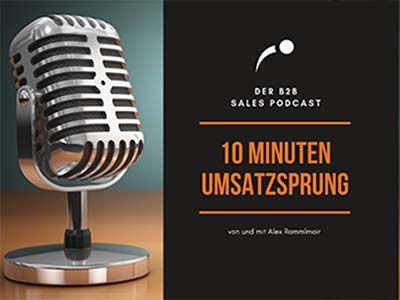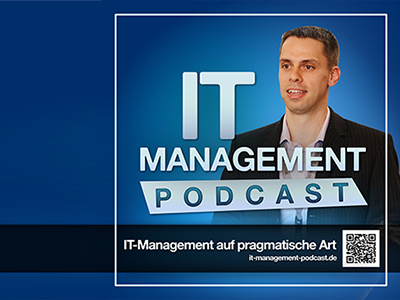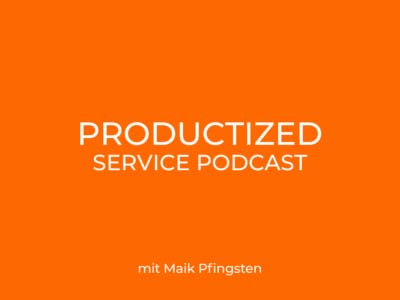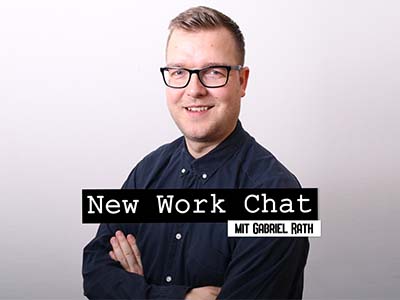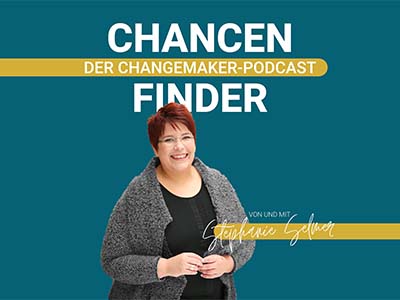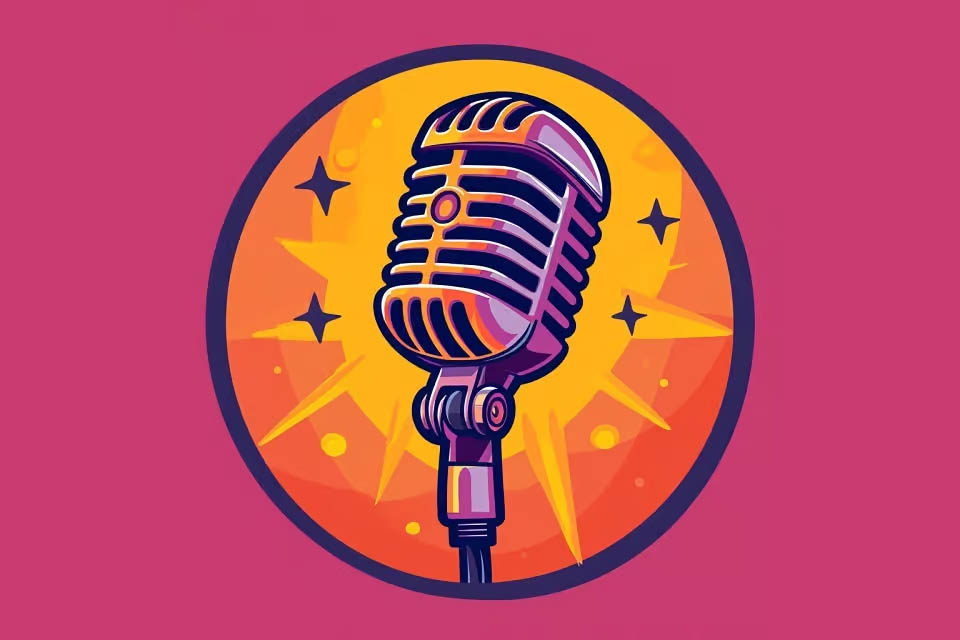Hidden German Podcast Champions
“What is your favorite podcast?” ” Which podcast do you recommend?” Or: “Do you know a good podcast about the topic X?” In the last weeks and months I have heard many such questions. Podcasts are popular. They inform and entertain, impart knowledge or ask questions to which one or the other has long been looking for answers. I also have some podcasts that I listen to regularly and would like to recommend. Not the big ones from well-known manufacturers, TV or radio stations, but small and fine ones. Hidden Podcast Champions from great men and women who are passionate about their topics and put a lot of love into the production of the audio files.
My personal podcast recommendations
What is good leadership? How important are goals? What can be done better in marketing and sales? Or: How does work develop? There are a number of questions that keep me busy. Some of my favourite podcasts deal with these topics. Others discuss digital transformation, new work or personal development. However, I would like to publish not only a short list of my Hidden Podcast Champions, but also let podcasters have their say. This way you ideally know in advance what to expect and what you will hear later … 😉
It’s about Leadership
- Website: https://itsaboutleadership.de/podcast/
- Apple: https://podcasts.apple.com/de/podcast/its-about-leadership/id1460127661
- Spotify: https://open.spotify.com/show/2WgMhYRoYZQYqzfXM2DPFQ
Jo, what is your podcast about or what is the central topic?
Jo Kristof: Our podcast is all about leadership and guidance. We talk to people who take on leadership and responsibility in a wide variety of places every day: Executives in companies, idea generators, founders, people from non-profit organisations, from sports, culture, and so on. Always curious about how they live leadership. And full of joy in learning and inspiration together.
I talk to people who take or have taken on leadership in the most diverse contexts. These are classically managers from companies, but also people who shape and lead non-profit associations, from the sports or artistic sector. What unites these people is that they do not just lead, but that people follow them in what they do. The interviews curiously question the understanding of leadership that characterises individuals. We talk about experiences and learning curves on the way to becoming a leader, and offer our listeners inspiration and food for thought from people who have something to say about leadership.
Who would you like to address with it?
Jo Kristof: We want to address leaders, prospective leaders and people who live leadership and who are always inspired by how others live leadership.
Why do you run the podcast?
Jo Kristof: In my job I experience so many people who take on leadership in so many different ways. Many of them are not even aware of how much effect they have by taking on responsibility and leadership. At the same time, I read and experience that in many places people are looking at what people in leadership do wrong and what they should do differently. I would like to make good leadership visible and appreciate leadership in all its facets. And thus provide inspiration for others to look at leadership differently, to reflect or perhaps to take responsibility themselves.
I want to understand what understanding of leadership shapes these people, what experiences and learning curves have influenced them on their path, and how they live leadership in their environment. I am interested in the people behind the leadership role. I would like to inspire myself and others to think about and reflect on the role of leadership. It is also about the joy of learning together, about impulses and inspiration.
What is the frequency of your podcast and how long do individual episodes last approximately?
Jo Kristof: One episode in the middle of the month, 45-60 minutes.
Do guests have their say?
Jo Kristof: Yes, almost exclusively, because it’s all about the guests. (This is an interview podcast.)
And what is your favourite podcast?
Jo Kristof: I have some podcasts that I like very much..
- Deutschland3000 by Eva Schulz – she is simply the best questioner among the podcasters.
- Eine Stunde Was mit Medien by Deutschlandfunk Nova – I like media and I like the metaperspective on media that this podcast offers every week.
- Trust your Muse by Sara-Lena Eisermann – great, inspiring conversations with great, inspiring people that not everyone knows yet.
Ziele setzen, Ziele erreichen
- Website: https://andreclaassen.de/podcast/
- Apple: https://podcasts.apple.com/de/podcast/ziele-setzen-ziele-erreichen-mit-objectives-key-results/id1509043240
- Spotify: https://open.spotify.com/show/41dAS2D1FJC8oAlUJA5LVa
André Claaßen: The focus in my podcast is on target systems, especially the method Objectives & Key Results. But my podcast is about more than just OKR. The central pivot of the podcast is the topic of impact: But my podcast is about more than just OKR. The central pivot of the podcast is the topic of impact:
- impact in change,
- effect in product management,
- effect in your own work and perhaps even effect in the pursuit of personal goals.
From this starting point “effect” I illuminate different fields. The title “Setting goals, achieving goals” could easily be changed in the future, because goals alone do not achieve anything in the first place.
Who would you like to address with it?
André Claaßen: Who is my target group: decision-makers in IT, administration and medium-sized businesses, who are eagerly looking for more impact with their teams and better decisions. But I would also like to accompany people who have discovered OKR as a method for themselves and their work and are looking for a good sparring partner.
Why do you run the podcast?
André Claaßen: I admit, it is a commercial podcast. Its main purpose is to make customers aware of my expertise. They should recognise me as a personal brand and become curious. I am firmly convinced that podcasts, in contrast to blog articles, are very effective at conveying one’s own personality. But I will also work with other formats in the future.
What is the frequency of your podcast and how long do individual episodes last approximately?
André Claaßen: Originally I aimed for a weekly frequency, but I have noticed that I do not always succeed. In reality it is currently more like 14 days.
Do guests have their say?
André Claaßen: Absolutely. I try to bring a balanced mix of my own contributions and guests. I would especially like to have guests who have made their own personal experiences with OKR or effects. I plan to take guests from English-speaking countries as well, but I still have to work on my pronunciation and the German accent. I don’t like the partly “stuffy” view on the topic OKR. Often I see a pure description of methods without conveying the ideas behind them. This is the same danger that has already arisen with Lean & Agile. People look at concrete methods that are the result of Lean & Agile, but do not understand that the pure reproduction of the methods is not enough.
And what is your favourite podcast?
André Claaßen: I am currently subscribed to over 200 podcasts. I have been a podcast fan since 2008 and originally enjoyed listening to podcasts on role-playing and IT technology. Since 2016, my consumption has become much broader in terms of topics. This also has to do with my personal change. I like to listen to podcasts in the context of my topics, such as the Firmenfunk of Leonid Lezner, but also increasingly the good new podcast of Christian Müller.
However, in recent years my special interest has been in podcasts on social, political or historical topics. Therefore, I listen very regularly to the debate-cast by Sascha Lobo and the State of the Nation by Philip Banse and Ulf Burmeyer. And of course Lauer & Wehner, who I still have to support financially.
Unfortunately, I watch with some concern how podcasts become more and more commercialised. Especially the development at Spotify is giving me a lot of concern for the medium. A question you did not ask at all. Are there too many podcasts? My answer is no, there are also not too many blogs.
BlickRichtung Zukunft
- Podigee: https://blickrichtungzukunft.podigee.io/
- Apple: https://podcasts.apple.com/us/podcast/blickrichtung-zukunft/id1497167524
- Spotify: https://open.spotify.com/show/09b0CcZGQrQv57AK1k87ti?si=Cz_SbKf2TPCmgVOnSEPE2w
Sandra, what is your podcast about or what is the central topic?
Sandra Brauer: BlickRichtung Zukunft is a podcast for more composure and resilience in dealing with change. It is about the courage to change, systemic, stress- and communication and in the future more and more about digital balance and digital resilience.
Who would you like to address with it?
Sandra Brauer: Basically anyone who is interested in the change in our working and living environments and is looking for impulses for a more relaxed approach to the current digital structural change.
Why do you run the podcast?
Sandra Brauer: I have been told several times that my followers on Facebook and Instagram don’t have the time to read my posts, but they would like to do so. With the podcast I can continue to share my thoughts and reach even more people.
What is the frequency of your podcast and how long do individual episodes last approximately?
Sandra Brauer: I publish one or two episodes per month on an irregular basis. The duration varies from short episodes of less than 10 minutes to longer episodes of up to 30 minutes.
Do guests have their say?
Sandra Brauer: No and it is currently not planned.
And what is your favourite podcast?
Sandra Brauer: I really enjoyed listening to Charlotte Roche’s podcast on couples’ diology, I listen to the newsflashes every day, sometimes Lou (Louisa Dellert) and at the beginning of the Corona period the podcast of NDR-Info with Mr Drosten. I usually listen to audio books, I have a subscription to Zeit Audio and I really appreciate Deutschland Funk in the morning.
Firmenfunk
Leonid Lezner runs the Firmenfunk Podcast.
Leonid, what is your podcast about or what is the central topic?
Leonid Lezner: In the podcast we talk about HR and NewWork topics such as leadership, development, personal development, communication and most important: meaningful work.
Who would you like to address with it?
Leonid Lezner: All people who want to improve their work and the work of others.
Why do you run the podcast?
Leonid Lezner: I started the Firmenfunk Podcast with the vision that every working person deserves a good job that they do with passion and pleasure. The podcast should give impulses and improve people’s lives.
What is the frequency of your podcast and how long do individual episodes last approximately?
Leonid Lezner: 1-2 times a month, each episode lasts about 1 hour.
Do guests have their say?
Leonid Lezner: I talk to guests in every episode.
And what is your favourite podcast?
Leonid Lezner: The productions of Tim Pritlove. And more recently Wochendämmerung.
10 Minuten Umsatzsprung
- Website: https://www.umsatzsprung.com/podcast
- Spotify: https://open.spotify.com/show/4ImrmILathGfEXe1yELCf7
- Soundcloud: https://soundcloud.com/10minumsatzsprung
Alex, what is your podcast about or what is the central topic?
Alex Rammlmair: The other way around – what is not the point: what most people believe, what sales and marketing actually is.
Tell someone, “Think of a salesman,” and that person thinks of a BAD salesman. Not because there are no good salesmen, but because good salesmen are not perceived as such.
Regardless of whether you sell a service to a customer, a business case to the board of directors or a salary increase to the boss: there are always people who can do this ten times better than others. Incidentally, this has little to do with what most people understand by “selling”. But what is it then? That is exactly what this podcast is about.
Who would you like to address with it?
Alex Rammlmair: It’s again the other way around: who would I not like to address with my podcast? Everyone who still believes that the best product / work / idea / project will win out over the customer or the boss.
Why do you run the podcast?
Alex Rammlmair: And once again the other way around: Why don’t I stop doing it? Because there are more and more crazy people who listen to it and write it to me. I have no idea why they do that. Besides, such a podcast has a self-therapeutic effect. But I don’t think anyone wants to know that right now.
What is the frequency of your podcast and how long do individual episodes last approximately?
Alex Rammlmair: Once a week 10 minutes. As a self-proclaimed “expert” I should probably have more clever things to say. But I don’t.
Do guests have their say?
Alex Rammlmair: People who would actually be willing to appear in my podcast are suspect to me.
And what is your favourite podcast?
Alex Rammlmair: Akimbo von Seth Godin is my favourite podcast. If you know English, you should rather listen to this one than mine. To hear both would be even better, of course.
IT-Management
- Website: https://different-thinking.de/blog/
- Apple: https://podcasts.apple.com/de/podcast/it-management-podcast-f%C3%BCr-den-service-management-nerd/id918250820
- Spotify: https://open.spotify.com/show/51knh7S5ymf06A6iIbdhz8
Robert Sieber: Together with the listeners, I would like to establish a service management that focuses IT on the success of the company, that continuously ensures that high-quality services are delivered, that enables a partnership at eye level and that is flexible for the individual requirements of the business units.
So the podcast is all about good and above all pragmatic service management.
Who would you like to address with your podcast?
Robert Sieber: I recently completed a listener survey. My listeners come from two areas:
- Internal IT departments that want to manage the change from administrator to innovator. Many come from the “we make our processes beautiful so that it costs as little as possible” world. In other words, internal optimisation with growing shadow IT. This is very much about customer orientation and service quality, as well as the recognition that service management is (much) more than incident, change and perhaps problem management.
- The second large group are system houses or managed service providers who are pursuing the goal of building up a lucrative, long-term service business. Their problem is the operationalisation in sales, transition and operation of the services. It is the change from project to service business and thus the establishment of service management as a core competence of the system house.
Why do you run the podcast?
Robert Sieber: I worked in IT for four years in a large corporation. There I was able to experience what happens when service management is introduced in the typical way: Managerial positions were the first to be filled, processes were established on a greenfield site, and everything was done to make the user as comfortable as possible. That did not fit for me at all. That was the trigger for the podcast. Almost like a therapy project.
In the meantime, I’m probably on a mission: I want an internal IT and managed service provider to be as easy for its customers as booking, paying and using a flight from Frankfurt am Main to Bali.
What is the frequency of your podcast and how long do individual episodes last approximately?
Robert Sieber: I publish one episode every fourteen days. There are solo episodes that last between 10 and 20 minutes. In these, the listener gets a very concrete topic with sound and effective information and tips.
Because the world of service management is so diverse, I always invite experts from other areas (leadership, sales, communication, etc.) as guests in the podcast, so that my listeners can benefit from their individual perspective and thus receive suggestions beyond the core topic. These usually last 1 hour.
Do guests have their say?
Robert Sieber: Yes.
And what is your favourite podcast?
Robert Sieber: That’s not an easy question to answer, as I have a wide range of interests. At the moment I like to listen to the following three podcasts: Content Performance Podcast, Datenschutz Guru and Die blaue Couch.
Productized Service
Maik Pfingsten runs the Productized Service Podcast.
- Website: https://maikpfingsten.de/podcast/
- Spotify: https://open.spotify.com/show/674S0vZsUH5d8Uz9IjsYtf
Maik, what is your podcast about or what is the central topic?
Maik Pfingsten: The central topic is how I can standardise, virtualise and autopilot my freelance service through a productized service. To get out of the time versus money hamster wheel (+ crazy travel circus) and to have more time for the things that really matter. Basically it’s all about time and financial freedom for freelancers.
A productized service is more or less a digitalised service product. Something like a star recipe for freelance star chefs, which they deliver as a star menu via the Internet.
Who would you like to address with it?
Maik Pfingsten: Firstly, experienced freelancers in B2B, i.e. masters of their trade, with 6-digit annual sales. And secondly, experienced managers from the industry with a 6-digit annual salary, who no longer feel like bending over backwards and are thinking about becoming self-employed.
The listener group are 40+ years old, usually have children and at some point in their lives have seen a university from the inside. Many of them have a MINT background. Currently they exchange time for money (hourly rate or AT-contract). They want to live freedom and their master craft.
Why do you run the podcast?
Maik Pfingsten: I would have wished for such a podcast in 2005. Then I would have avoided some expensive mistakes in my entrepreneurial life (250.000€ sunk, witnessed an insolvency, etc.)
What is the frequency of your podcast and how long do individual episodes last approximately?
Maik Pfingsten: I’m broadcasting since 2014. Every time I have something to tell, a new episode comes up. Mostly weekly, but sometimes with breaks. The episodes are between 30 – 60 minutes long.
Do guests have their say?
Maik Pfingsten: Yes, I also have interview guests and answer questions from listeners.
And what is your favourite podcast?
Maik Pfingsten: I currently subscribe to 20+ podcast. InvestED and Raumzeit is what I listen to most.
New Work Chat
- Website: https://gabrielrath.com/newworkchat/
- Apple: https://podcasts.apple.com/de/podcast/new-work-chat/id1518312429
- Spotify: https://open.spotify.com/show/380Pv5iVNfXPfge81k2zYq
Gabriel, what is your podcast about or what is the central topic?
Gabriel Rath: In my interview series “New Work Chat”, I question makers of digital transformation about their greatest learnings in their work as designers. I see myself as a learner, who is interested and wants to know why and what for. It’s about networked collaboration, disruptive thinking, cultural change and the question of how we reconcile our work with our lives.
Who would you like to address with it?
Gabriel Rath: There is no specific target group that I want to address. However, I am happy about every listener who can take something for him or herself. It is all about learning. And you can actually learn a lot from my guests – not only about New Work, but also about the question of how we want to develop the world together. I have already had futurologists, authors and agile coaches as guests and I am delighted about the different perspectives and life plans, which I personally find very inspiring.
Why do you run the podcast?
Gabriel Rath: It’s fun. It’s like blogging, only different. You pick a topic and get to the bottom of it together with an expert you choose yourself. And I notice, by the way, how this series has made me even more curious. I sometimes find myself talking to people and interviewing them for me because I like to learn.
What is the frequency of your podcast and how long do individual episodes last approximately?
Gabriel Rath: I publish about every 2 weeks on YouTube and in my blog. An interview lasts about 45 minutes, but it can also be 75 minutes like one of my favourite episodes with Stephan Grabmeier.
Do guests have their say?
Gabriel Rath: I have chosen a classic interview style and invite guests who I find inspiring, who I met at a conference or who I have been following for a long time, like Sascha Pallenberg.
And what is your favourite podcast?
Gabriel Rath: For example, I like listening to OTWTNW and Fest und Flauschig. And often I just listen to different formats according to the topic.
Arbeitsphilosophen – Die Zukunft der Arbeit
- Website: https://einfach-eilers.com/arbeitsphilosophen
- Apple: https://podcasts.apple.com/us/podcast/arbeitsphilosophen-die-zukunft-der-arbeit/id903744123
- Spotify: https://open.spotify.com/show/3AcMs3p7V5eCJ1dK8yymhy
Frank, what is your podcast about or what is the central topic?
Frank Eilers: I try to explore the topic of the future of work from different perspectives. There are main topics with about 10 episodes (e.g. capitalism rethought, learning to learn, stress vs. relaxation).
Who would you like to address with it?
Frank Eilers: People who can imagine a new working world or are already actively working on it. No matter whether they are entrepreneurs, managers, employees or freelancers. I believe that there are no limits to this topic. I also know of female listeners from the administration or trade.
Why do you run the podcast?
Frank Eilers: Because I believe that the current working world needs a clear update. Corona is certainly a current catalyst in this respect. But there is still a lot of potential in all directions.
What is the frequency of your podcast and how long do individual episodes last approximately?
Frank Eilers: I broadcast weekly and usually an episode lasts between 25 and 30 minutes. But it can also be 15 or 50 minutes. That’s the so-called artistic freedom.
Do guests have their say?
Frank Eilers: Yes. Definitely. I also do a solo episode now and then. But there’s a maximum of two contributions per topic.
And what is your favourite podcast?
Frank Eilers:Difficult question. It changes very often. Thematically it goes in different directions as well. At the moment I love listening to the Finanzrocker Daniel Korth and Daniel Stelter mit Beyond the Obvious.
Chancenfinder
Stephanie Selmer runs the Chancenfinder – der Changemaker Podcast.
Stephanie, what is your podcast about or what is the central topic?
Stephanie Selmer: My podcast is about the ‘Transformation Mindset’ and is meant to be a support for all those who want to take the first steps towards change in their organisation.
Who would you like to address with it?
Stephanie Selmer: My target group are those who want to drive change in their company. It doesn’t always have to be the entrepreneurs or managers who have the big money. Change mindsets start small and every step can make a difference.
Why do you run the podcast?
Stephanie Selmer: I am doing this podcast because many media address entrepreneurs and executives, but not employees. But motivated employees who are inspired and want to try something out can achieve an incredible number of things.
What is the frequency of your podcast and how long do individual episodes last approximately?
Stephanie Selmer: I’m taking a summer break until the middle of August and then the podcast will be released again every two weeks. The episodes usually last between 10 and 15 minutes so that you can listen to them easily now and then.
Do guests have their say?
Stephanie Selmer: I regularly invite guests to talk about the topic of ‘change’ from their own perspective. So we also take a look at individual sectors such as IT companies, the nursing professions or, in the near future, a baker. But also different activities, most recently, for example, an expert for salary negotiations.
And what is your favourite podcast?
Stephanie Selmer: My favourite podcast after years is still Greator (formerly GedankenTanken). I have never seen so many different ideas. And I always like to listen to Gaby Graupner’s Schattenspringer or Jürgen Wulff’s Orientierungszeit.
Conclusion
Do you already know one or the other of my Hidden Podcast Champions? That would be great, because these podcasters deserve to be heard. Are there any new podcasts for you? Great. Feel free to listen in and get in touch with the creators. They will certainly be happy to receive feedback or ideas. Maybe you have other podcasts that you think should be mentioned? Then you are welcome to write them in the comment field. This should please the podcast fans among our blog readers and will help me to expand my list with more podcast champions. Thanks.
Notes:
Michael Schenkel has published more articles in the t2informatik Blog, including
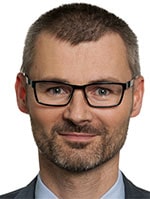
Michael Schenkel
Head of Marketing, t2informatik GmbH
Michael Schenkel has a heart for marketing - so it is fitting that he is responsible for marketing at t2informatik. He likes to blog, likes a change of perspective and tries to offer useful information - e.g. here in the blog - at a time when there is a lot of talk about people's decreasing attention span. If you feel like it, arrange to meet him for a coffee and a piece of cake; he will certainly look forward to it!
